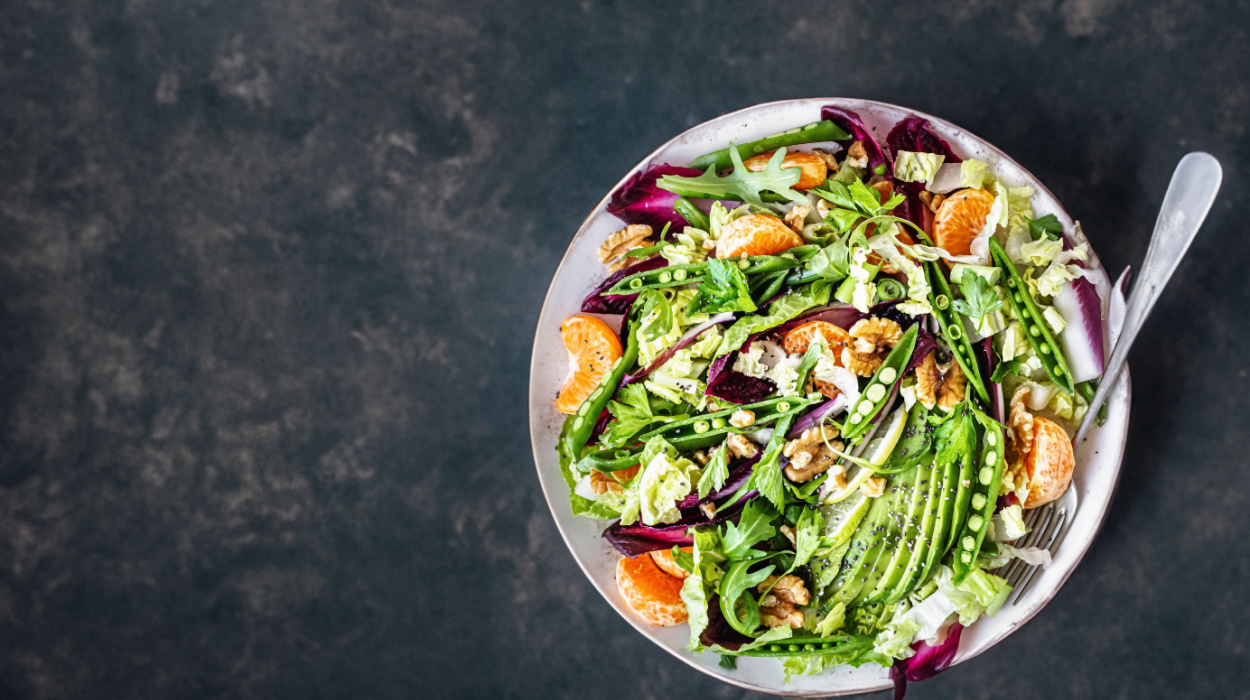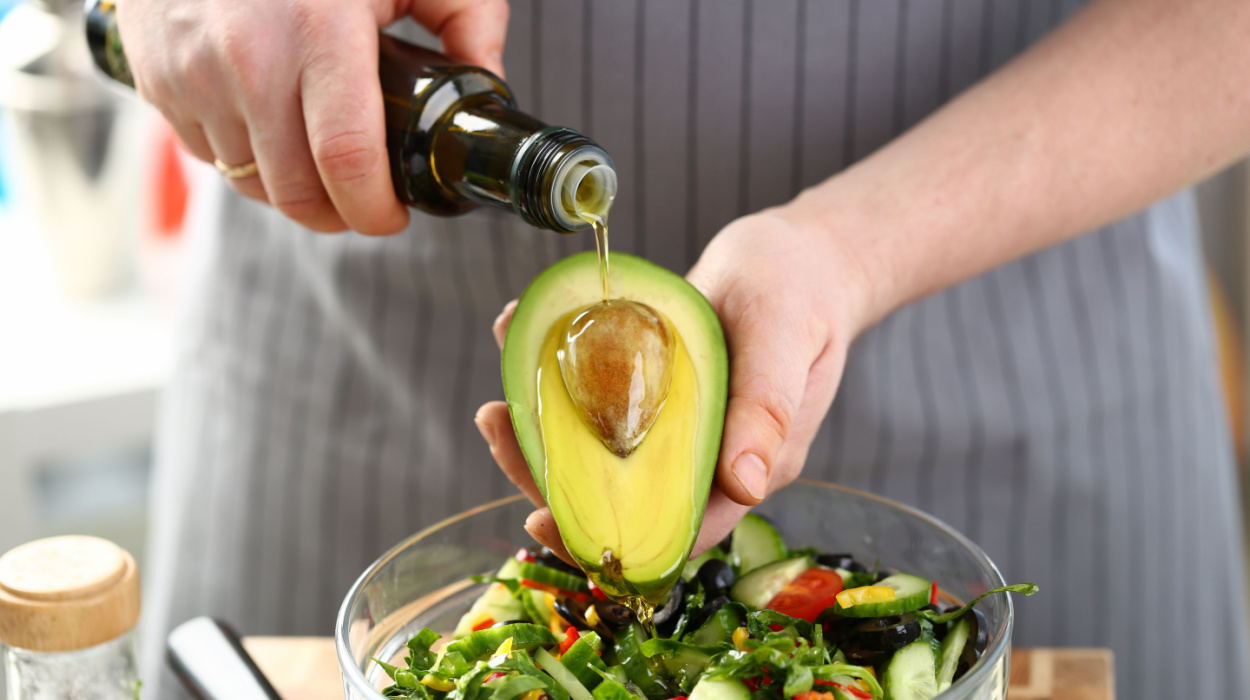 Expert's opinion
Expert's opinion
Expert's opinion
The article is a subjective view on this topic written by writers specializing in medical writing.
It may reflect on a personal journey surrounding struggles with an illness or medical condition, involve product comparisons, diet considerations, or other health-related opinions.
Although the view is entirely that of the writer, it is based on academic experiences and scientific research they have conducted; it is fact-checked by a team of degreed medical experts, and validated by sources attached to the article.
The numbers in parenthesis (1,2,3) will take you to clickable links to related scientific papers.
Clean Keto Diet In 2024: Definition, Pros, Cons & Tips

Get ready to explore the Clean Keto Diet and imbibe valuable insights you need to know. As a guide for anyone interested in following it, here’s a summary of what you’ll find:
- Understanding the concept and principles of a clean keto diet.
- Exploring the pros and cons of adopting a clean keto diet.
- Identifying who can benefit from following a clean keto diet.
- Highlighting the key differences between clean keto and dirty keto and offering tips.
- A conclusion.
What Is A Clean Keto Diet?
A clean keto diet is a modified version of the traditional ketogenic diet that emphasizes the quality and nutrient density of food choices. It combines the principles of a standard ketogenic diet (high fat, moderate protein, low carb) with a focus on consuming whole, unprocessed foods. This approach promotes optimal health while achieving ketosis.
What Is A Clean Keto Diet?
A clean keto diet is a modified version of the traditional ketogenic diet that emphasizes the quality and nutrient density of food choices. It combines the principles of a standard ketogenic diet (high fat, moderate protein, low carb) with a focus on consuming whole, unprocessed foods. This approach promotes optimal health while achieving ketosis.
The components of a ketogenic diet are:
- High-fat foods
- Moderate protein sources
- And low-carbohydrate options
Healthy fats play a crucial role in providing energy and maintaining satiety. Sources include avocados, nuts and seeds, olive oil, and coconut oil. Eat lean meats, poultry, fish, or plant-based proteins for moderate protein intake.
Carbohydrates are restricted in a clean keto diet, primarily coming from non-starchy vegetables and low-glycemic fruits. These provide essential vitamins, minerals, and fiber while minimizing the impact on blood sugar levels. Leafy greens, broccoli, cauliflower, berries, and citrus fruits are excellent choices.
Here’s a keto diet foods list in bullet points:
- Healthy fats: Coconut oil, seeds, nuts, olive oil, avocados.
- Protein sources: Lean meats, poultry, fish, eggs, tofu, tempeh.
- Non-starchy vegetables: Leafy greens, broccoli, cauliflower, zucchini, bell peppers.
- Low-glycemic fruits: Berries (strawberries, blueberries, raspberries), citrus fruits (lemons, limes).
- Dairy alternatives: Unsweetened almond milk, coconut milk, cashew cheese.
- Sweeteners: Stevia, erythritol, monk fruit.
- Beverages: Water, herbal tea, black coffee.
What Are The Pros & Cons Of A Clean Keto Diet?

Pros
- Effective weight loss: Clean keto, with its focus on nutrient-dense keto foods, can aid in shedding weight.
- Improved body composition: The clean keto diet supports muscle preservation while burning fat for energy.
- Increased energy levels: Providing steady energy from clean keto foods, helps maintain consistent energy throughout the day.
- Reduced inflammation: Avoiding processed foods on the clean keto diet can lead to reduced inflammation[1] in the body.
Cons
- Restrictive nature: The clean keto diet requires avoiding processed foods, fast food, and convenience foods, which can be challenging.
- Initial adaptation period: The body may need time to adapt to ketosis, resulting in temporary side effects.
- Potential nutrient deficiencies: Without careful planning, a clean keto diet may lack certain essential nutrients.
- Limited food choices: The clean keto diet restricts high-carb foods, which can be challenging for those with dietary preferences or restrictions.
Tips For Following A Clean Keto Diet

By minimizing processed ingredients, you can optimize your body’s ability to burn fat for energy. To help you navigate this dietary approach, you can do some of the following:
- Plan your meals: Take time to plan your clean keto meals in advance, ensuring they include the keto diet foods.
- Prioritize whole foods: Focus on consuming whole, unprocessed ingredients and avoid processed meats for optimal nutrition.
- Cook at home: Prepare your meals at home using fresh ingredients to have full control over what you eat and reduce the minimally processed foods you consume.
- Incorporate quality fats: Include healthy fats from sources like avocados, nuts, and olive oil in your meals and avoid trans fats.
- Keep up on drinking water: Consume plenty of water during the day to allow for healthy digestion.
- Read labels: When purchasing packaged foods, carefully read labels to avoid hidden sugars or additives.
- Emphasize vegetables: Include a variety of low-carb vegetables to provide essential vitamins and minerals.
- Seek support: Join online communities or seek guidance from a registered dietitian for motivation and advice.
- Consider the best-prepared meal delivery service: Look for reputable services that offer clean keto meal options.
- Be cautious with keto diet pills: Consult with a healthcare professional before using any pill, and choose the best keto diet pills based on expert recommendations.
Who Should Follow A Clean Keto Diet?
Is a clean keto diet right for you? Eating clean keto can be beneficial for several groups of individuals seeking specific health outcomes. Here’s who should consider following a clean keto diet:
- Individuals aiming for weight loss: Clean keto, with its emphasis on nutrient-dense foods, can help with obesity.[2]
- Those seeking to improve metabolic health: Clean keto has been shown[3] to improve markers of metabolic health, such as insulin sensitivity and blood sugar control.
- People with epilepsy: The ketogenic diet, including clean keto, has been used as a therapeutic approach to reduce seizures in individuals with epilepsy.
- Those looking to enhance mental clarity and focus: The clean keto diet provides a stable source of energy to the brain, supporting improved cognitive function.
- Individuals with inflammatory conditions: Clean keto, by avoiding processed foods, can help reduce inflammation in the body.
Clean Keto Vs. Dirty Keto: Understanding The Difference
There are differences between clean keto and dirty keto:
Clean Keto: Prioritizing Long-Term Health
It focuses on high-quality, nutrient-dense foods to support long-term health goals. It emphasizes consuming whole, unprocessed ingredients. Clean keto also encourages the use of grass-fed and pasture-raised animal products. Clean keto promotes a well-rounded approach to nutrition. This will help you aim for optimal health benefits beyond just weight loss.
Dirty Keto: Convenience Over Quality
The dirty keto diet, however, prioritizes convenience and simplicity over quality. It allows for more flexibility in food selection. This means including processed and low-quality options, as long as the macronutrient ratios stay the same. Dirty keto foods may yield short-term weight loss results but may lack the nutrients necessary for long-term health.
The Impact On Long-Term Health
Clean keto, with its focus on nutrient-rich foods, provides essential vitamins, minerals, and antioxidants. These elements help support long-term health and well-being. They also promote better overall nutrition and can help prevent nutrient deficiencies. On the other hand, dirty keto, mostly relying on processed foods, may lead to nutrient imbalances and potential health risks over time.
Conclusion
Adopting a clean keto diet can be a game-changer for your health and wellness. Focus on whole foods to fuel your body with the right nutrients. Planning your meals, cooking at home, and incorporating quality fats are vital for success. Staying hydrated, reading labels, trying more keto recipes, and seeking support from communities or professionals can further enhance your clean keto journey. Remember, there’s no one-size-fits-all approach, so listen to your body and make adjustments as needed. Embrace the clean keto lifestyle
+ 3 sources
Health Canal avoids using tertiary references. We have strict sourcing guidelines and rely on peer-reviewed studies, academic researches from medical associations and institutions. To ensure the accuracy of articles in Health Canal, you can read more about the editorial process here
- Pinto, A., Alessio Bonucci, Maggi, E., Corsi, M. and Businaro, R. (2018). Anti-Oxidant and Anti-Inflammatory Activity of Ketogenic Diet: New Perspectives for Neuroprotection in Alzheimer’s Disease. [online] 7(5), pp.63–63. doi:https://doi.org/10.3390/antiox7050063.
- Masood, W., Pavan Annamaraju and Uppaluri, K.R. (2022). Ketogenic Diet. [online] Nih.gov. Available at: https://www.ncbi.nlm.nih.gov/books/NBK499830/
- Yeo Jin Choi, Jeon, S. and Soo Young Shin (2020). Impact of a Ketogenic Diet on Metabolic Parameters in Patients with Obesity or Overweight and with or without Type 2 Diabetes: A Meta-Analysis of Randomized Controlled Trials. [online] 12(7), pp.2005–2005. doi:https://doi.org/10.3390/nu12072005.



